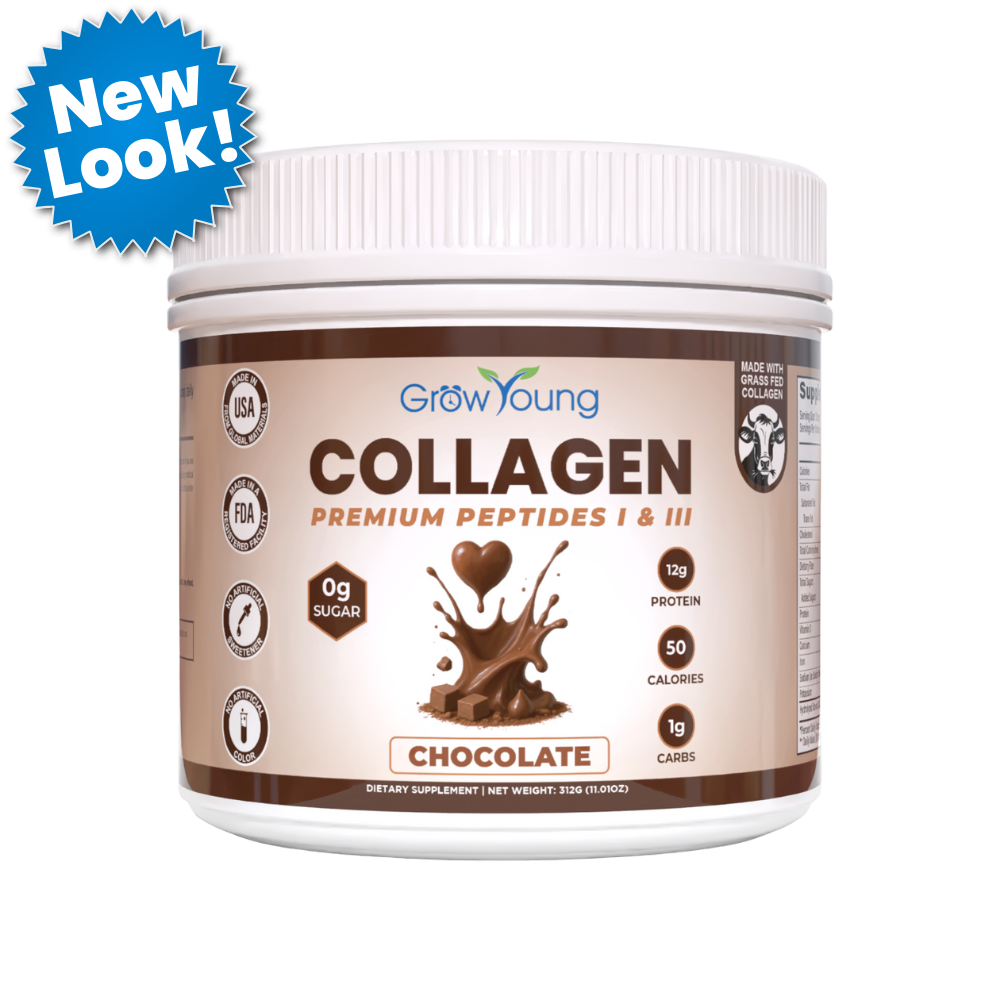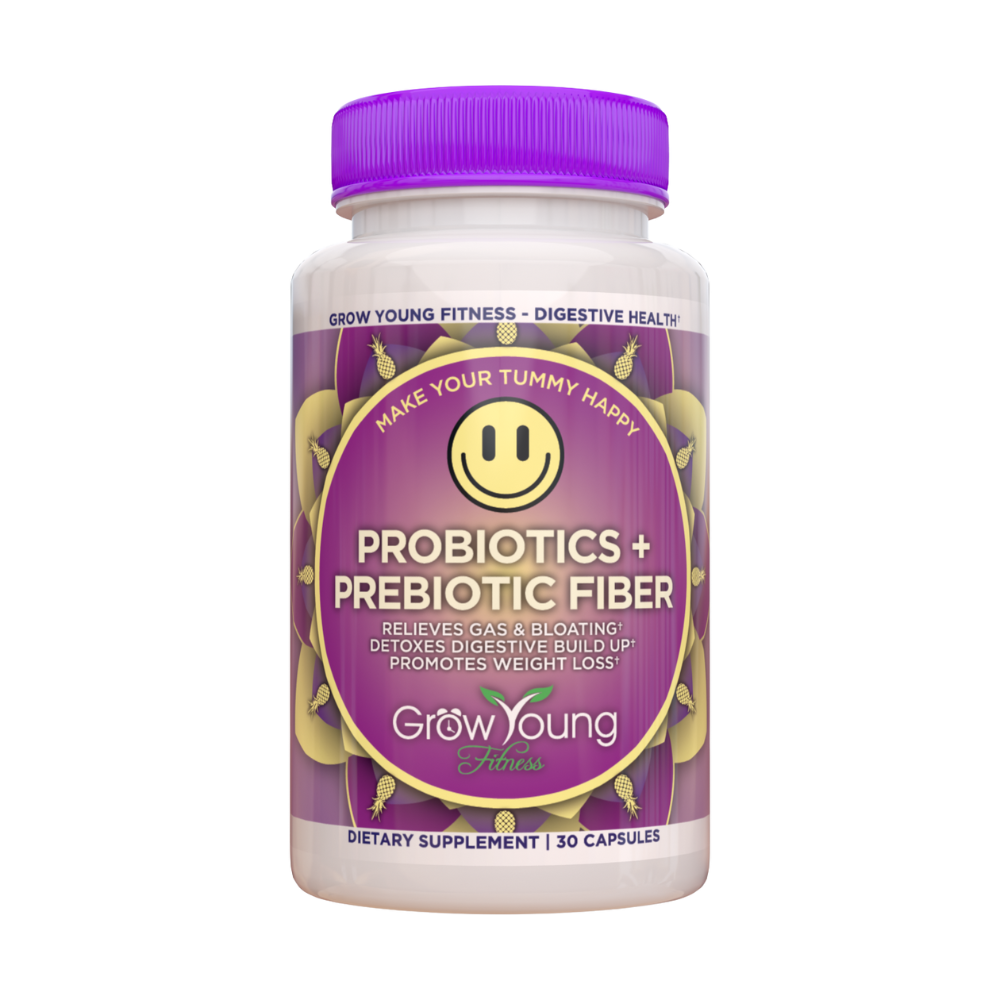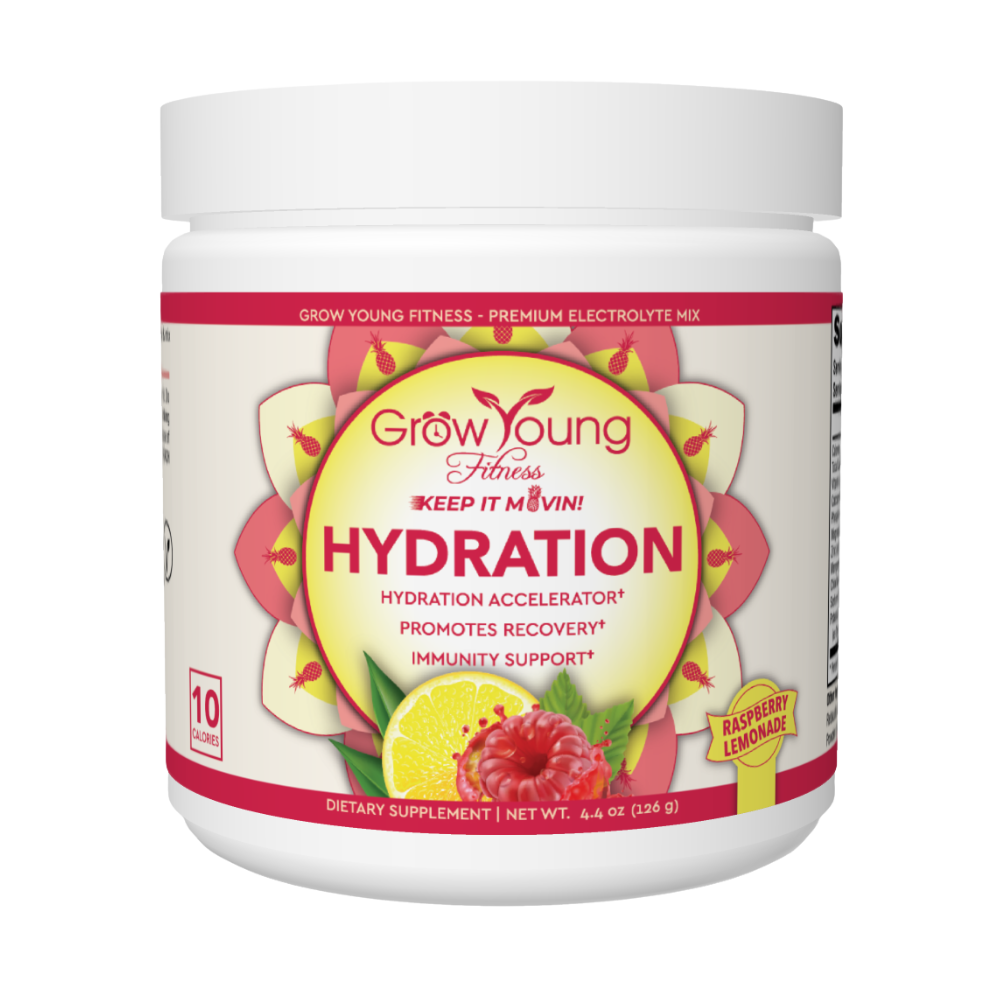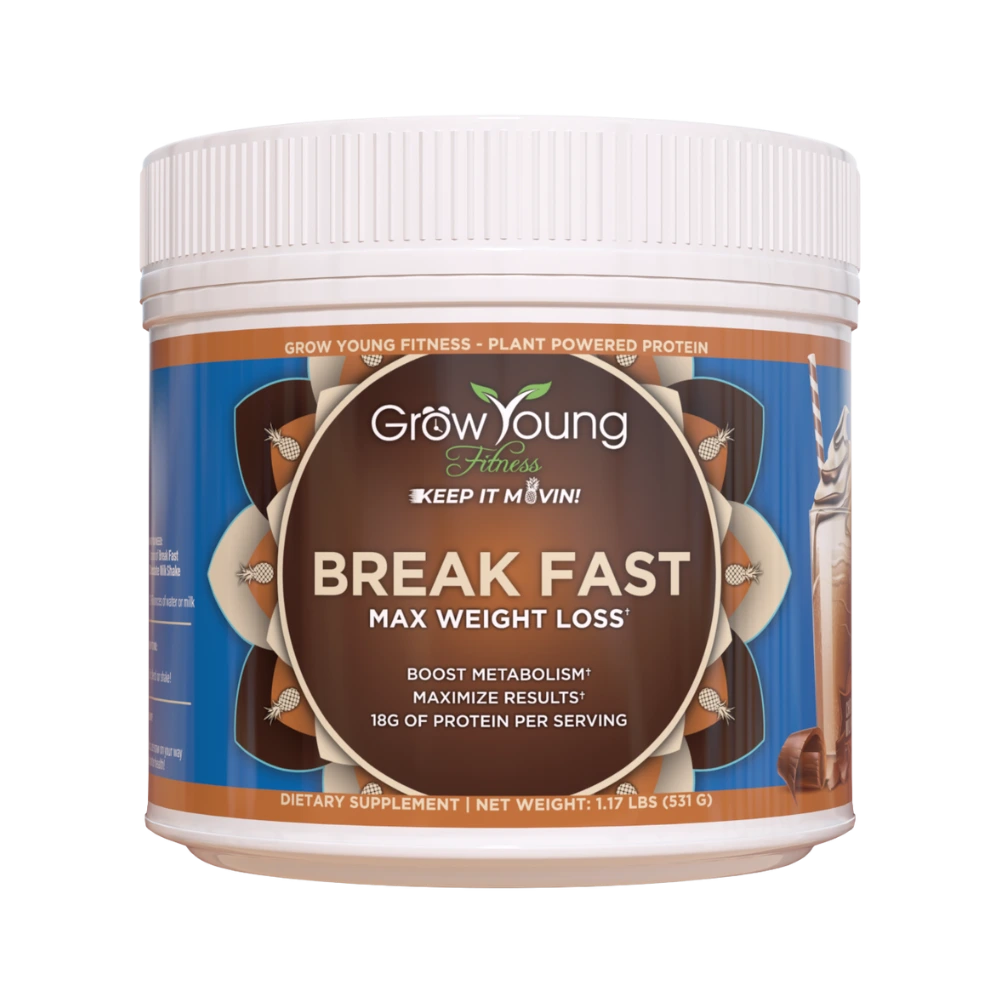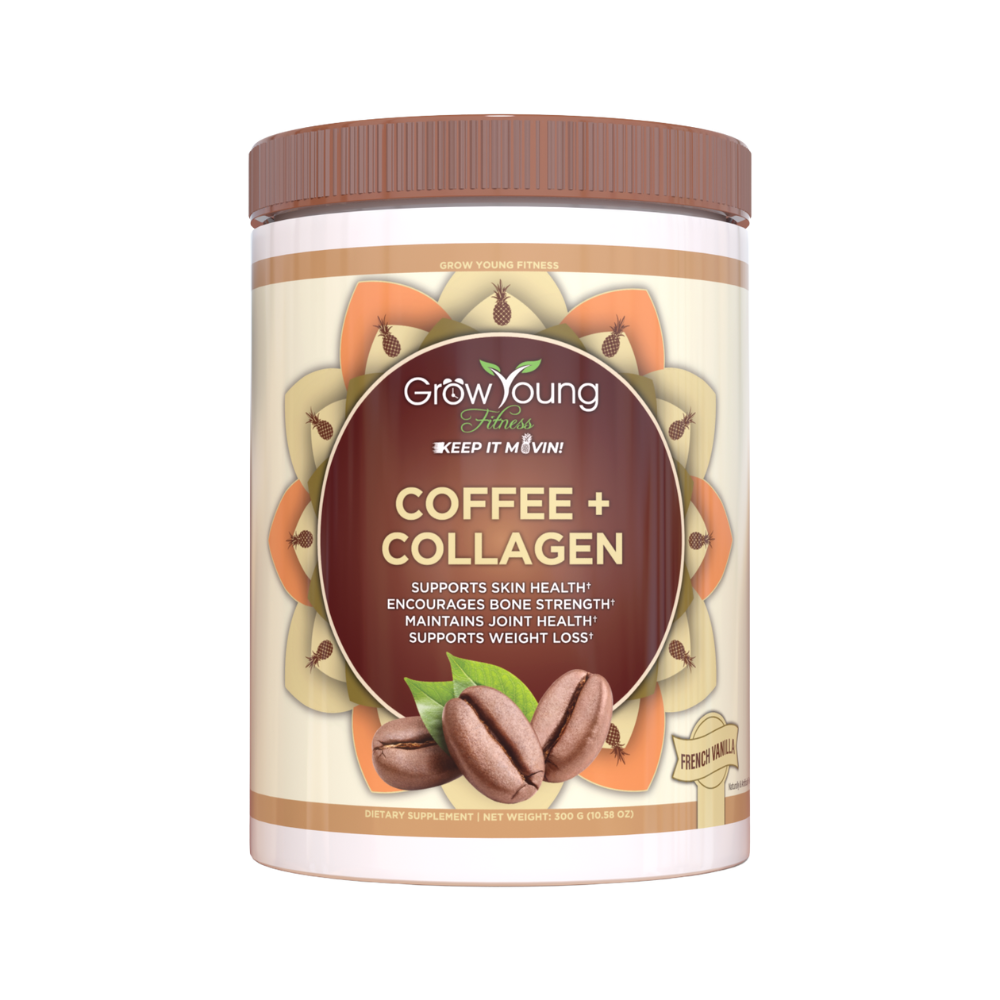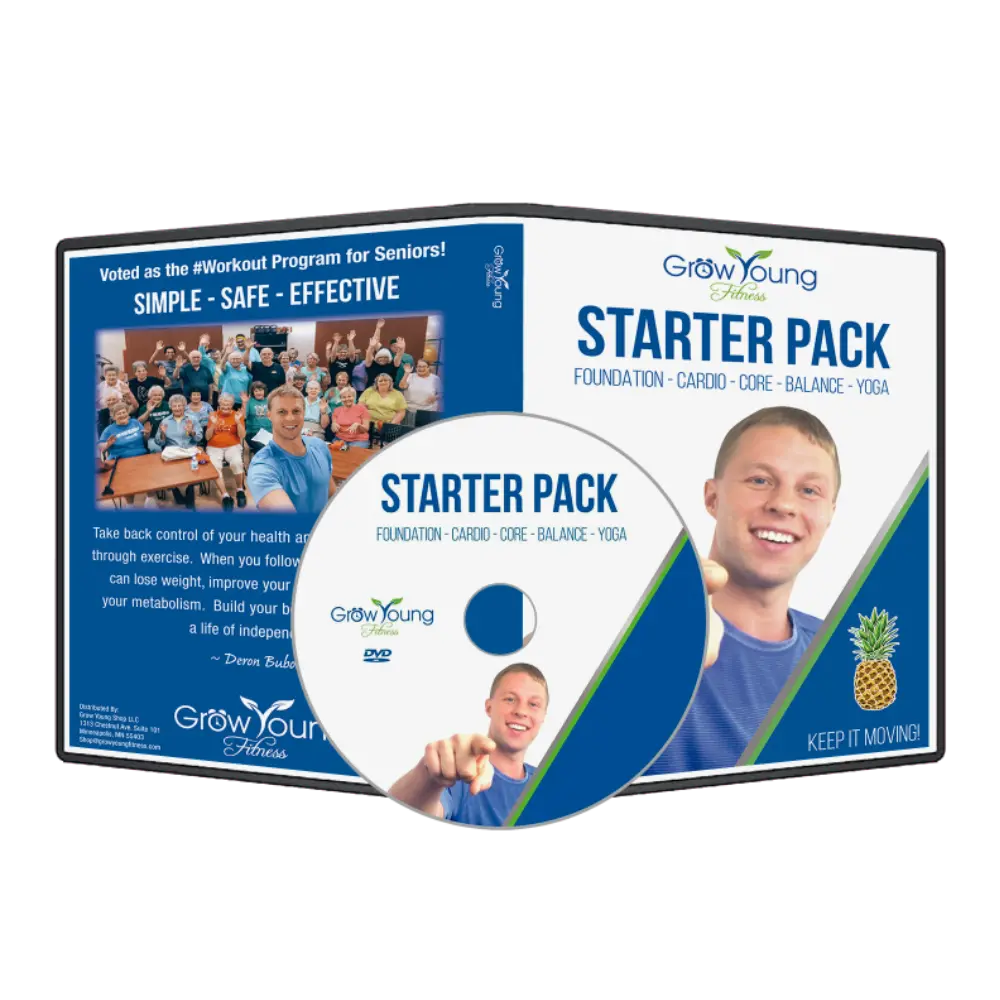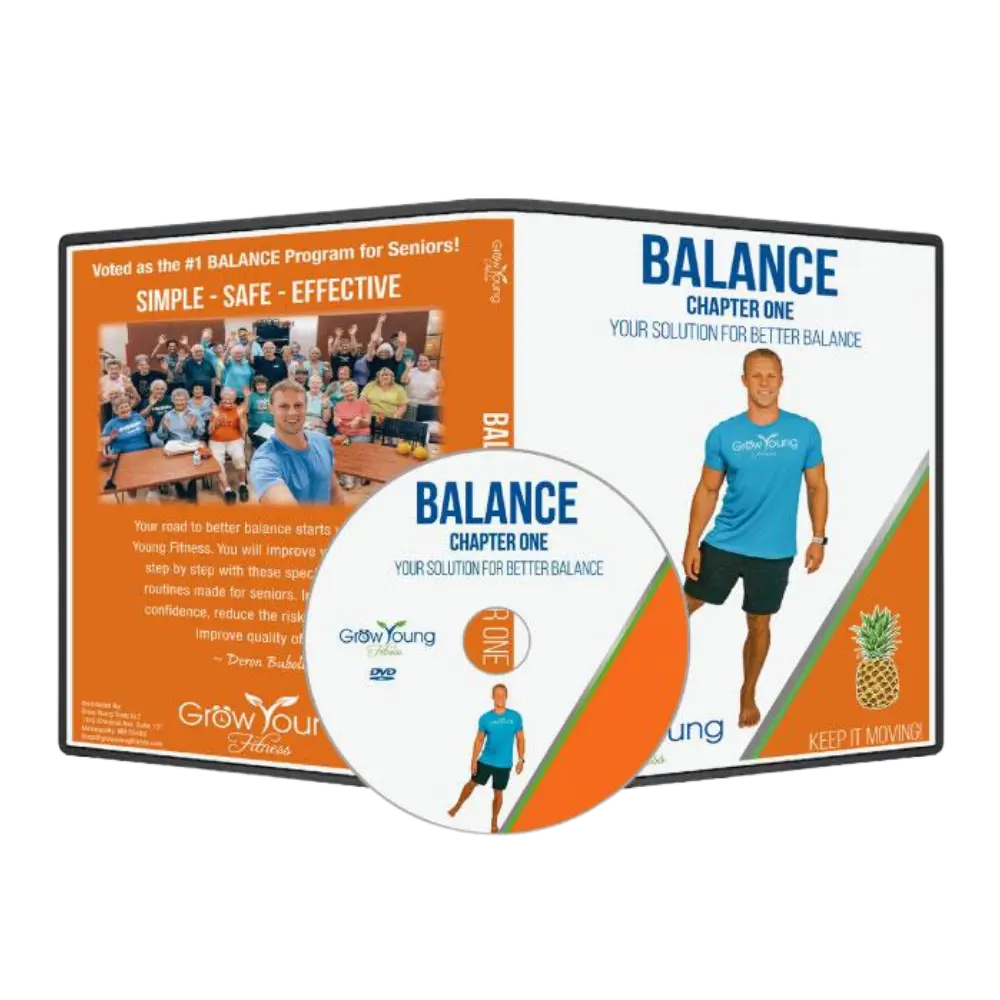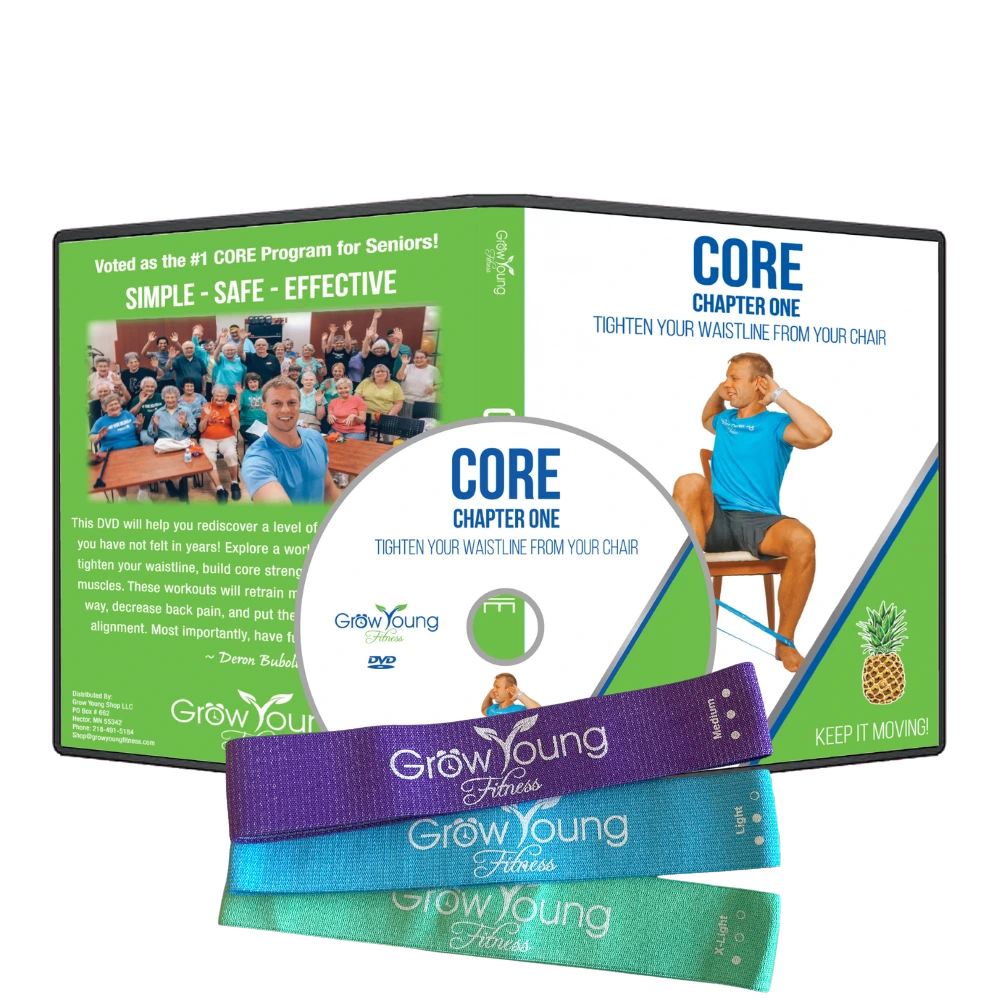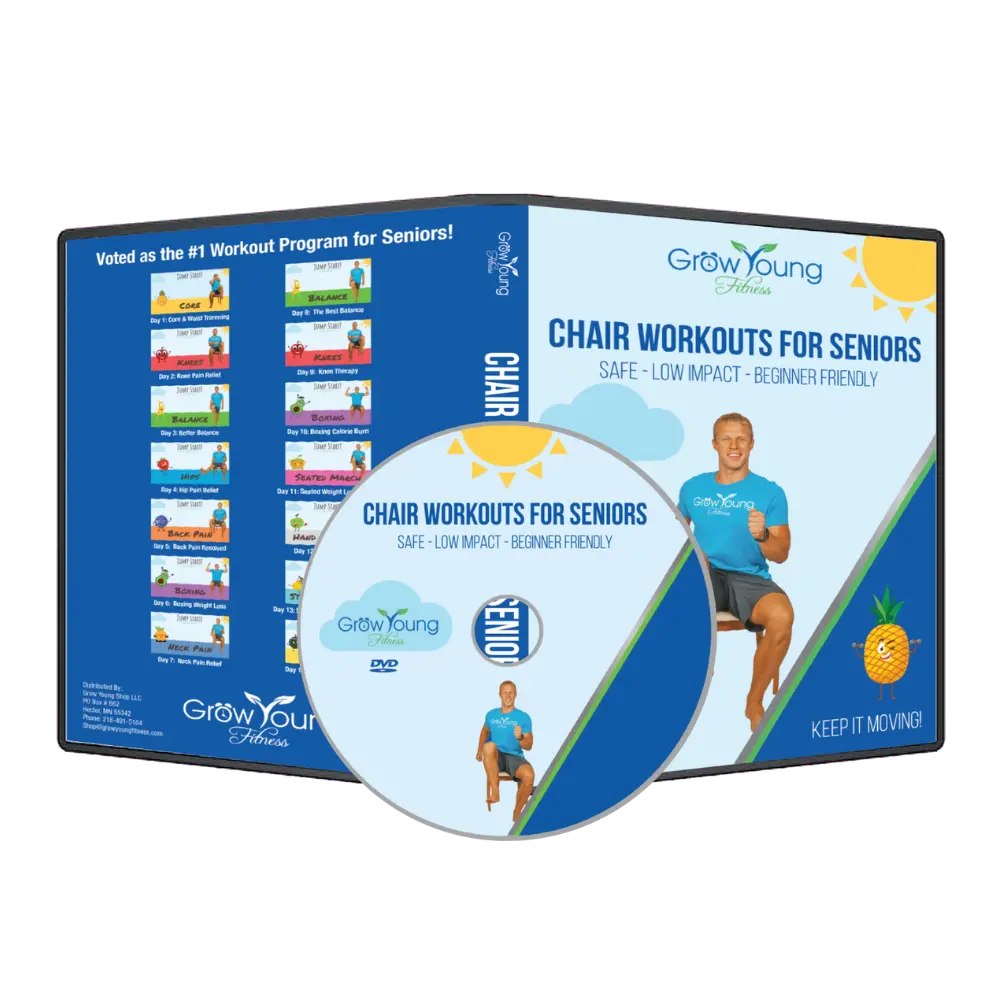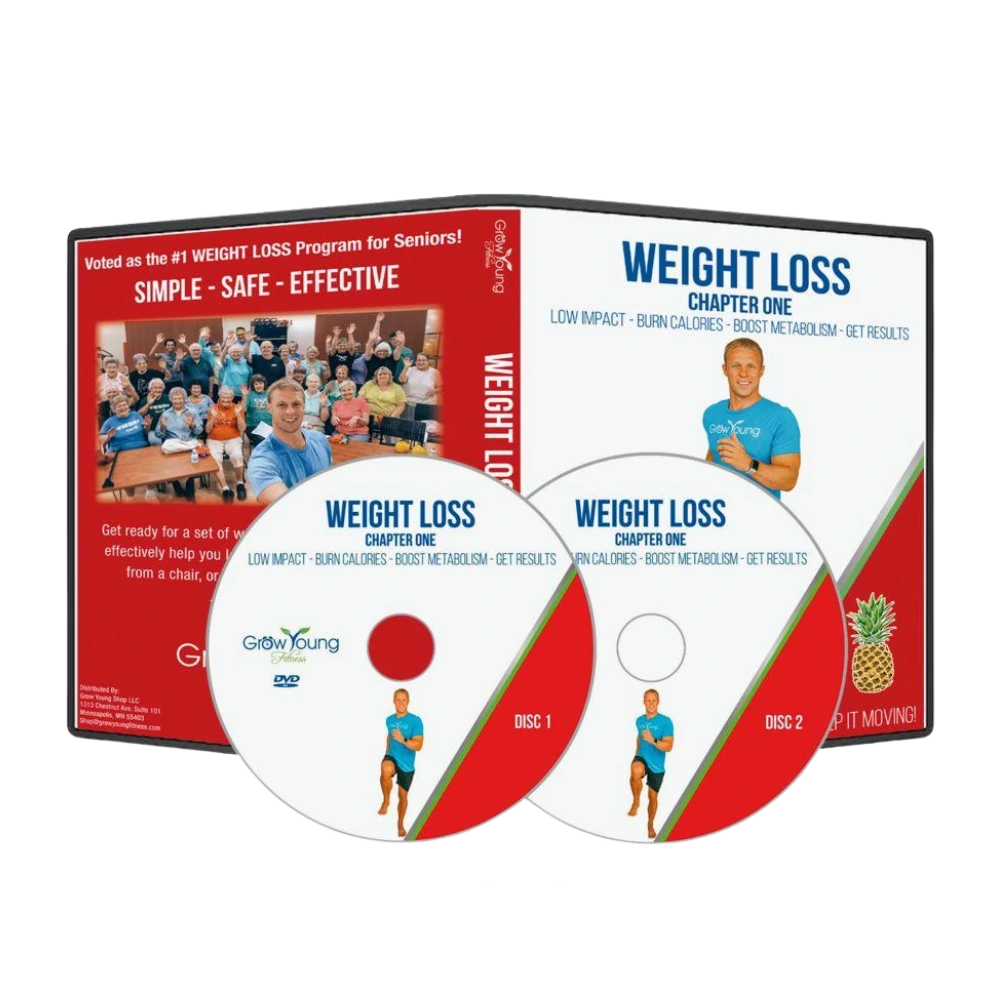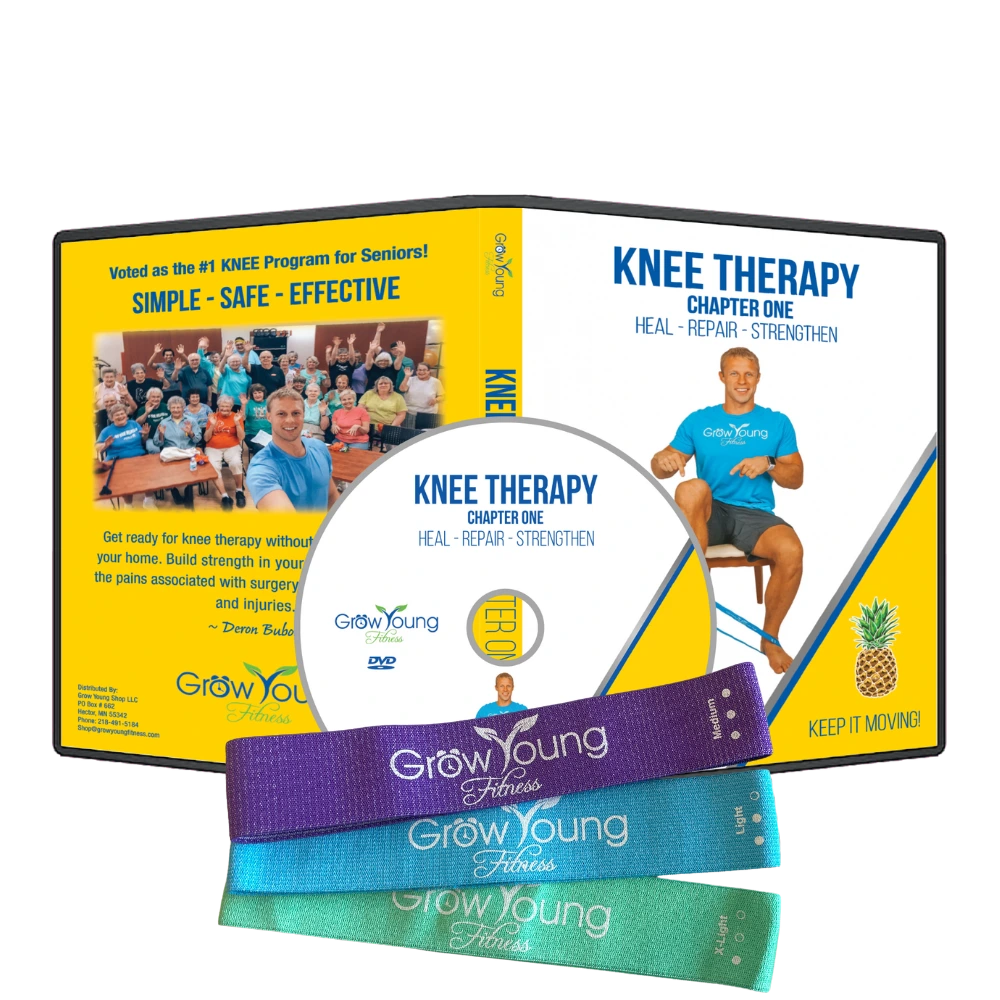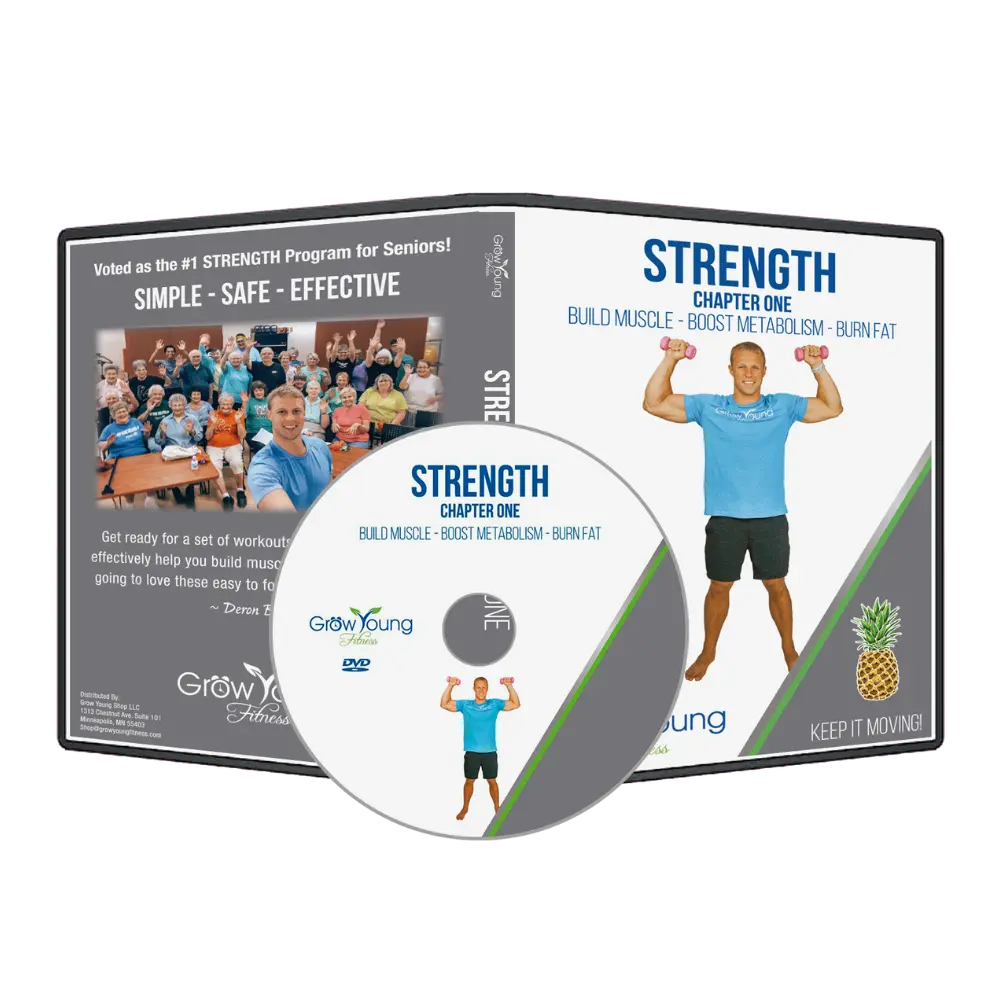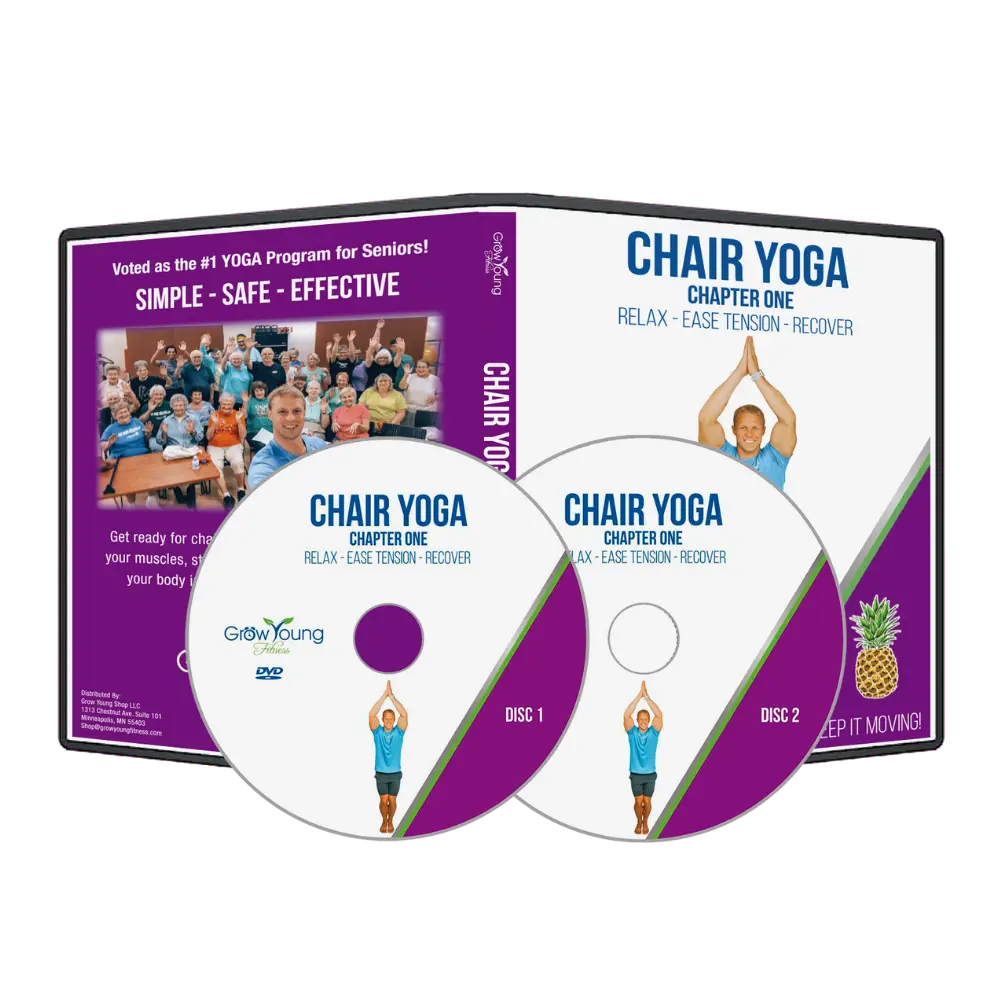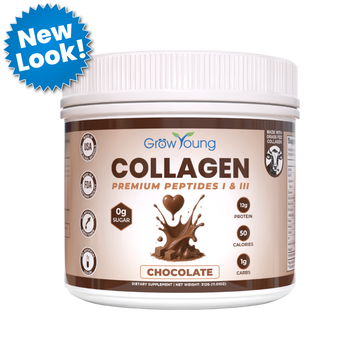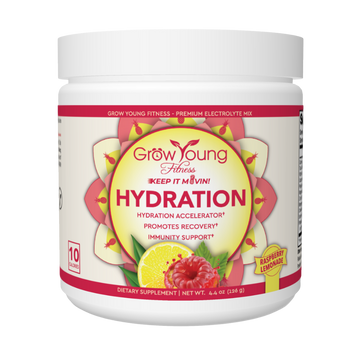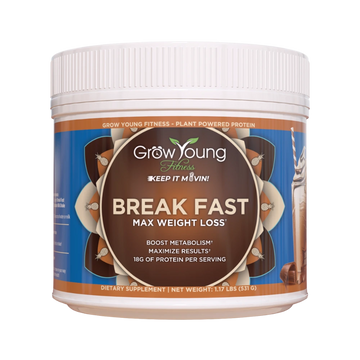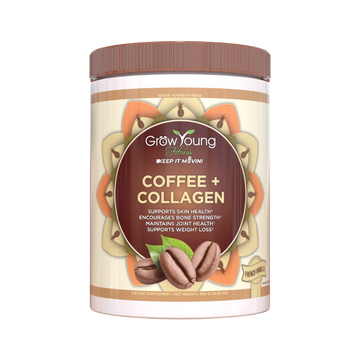Supplements and Exercises For Seniors
Join thousands of satisfied customers who trust our products and start growing young today!


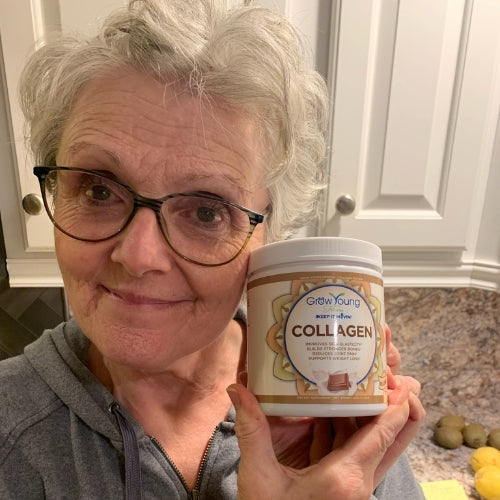









































Shop Best Sellers

Build Your Own Bundle and Save!
The more you add, the bigger the discount!
2 items - SAVE 10%
3 items - SAVE 25%
4+ items - SAVE 30%
Available for one time purchase products only, can not be combined with discount codes.

Premium Colostrum Capsules
Your body’s first line of defense, simplified into a daily capsule that supports immunity, digestion, and energy.
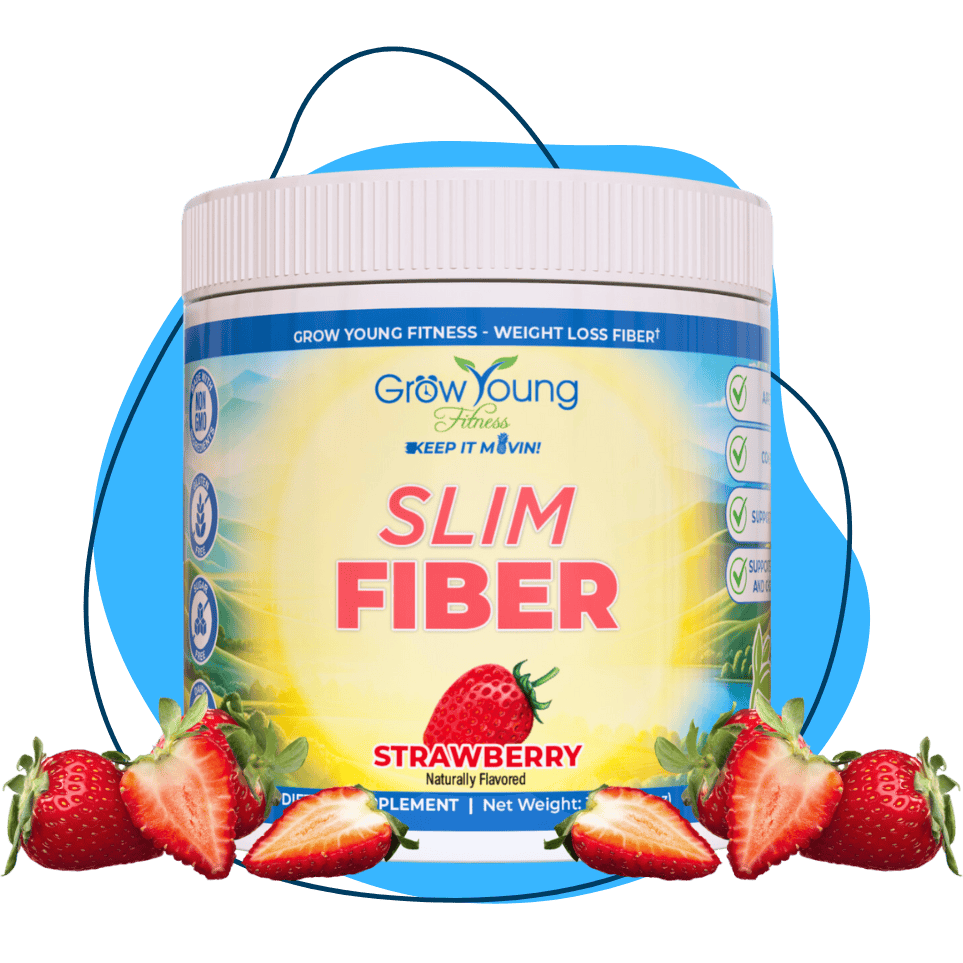
Slim Fiber - Weight & Appetite Control
Discover the delicious way to boost your health with Slim Fiber! Each strawberry-flavored scoop delivers 3.5g of fiber, zero sugar, and only 14 calories, helping you control appetite, support healthy blood sugar levels, and enjoy natural detoxification.
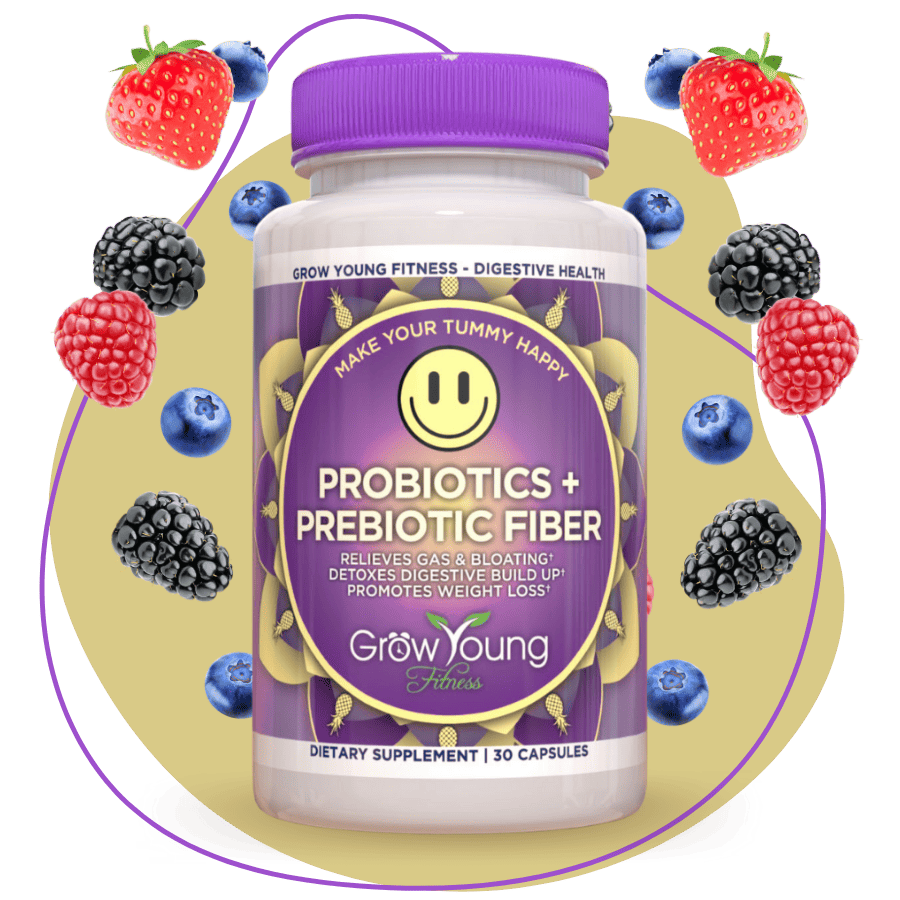
Probiotic + Prebiotic Fiber
Keep your Digestive System in Balance with just 1 capsule a day of our Prebiotic + Probiotic blend.
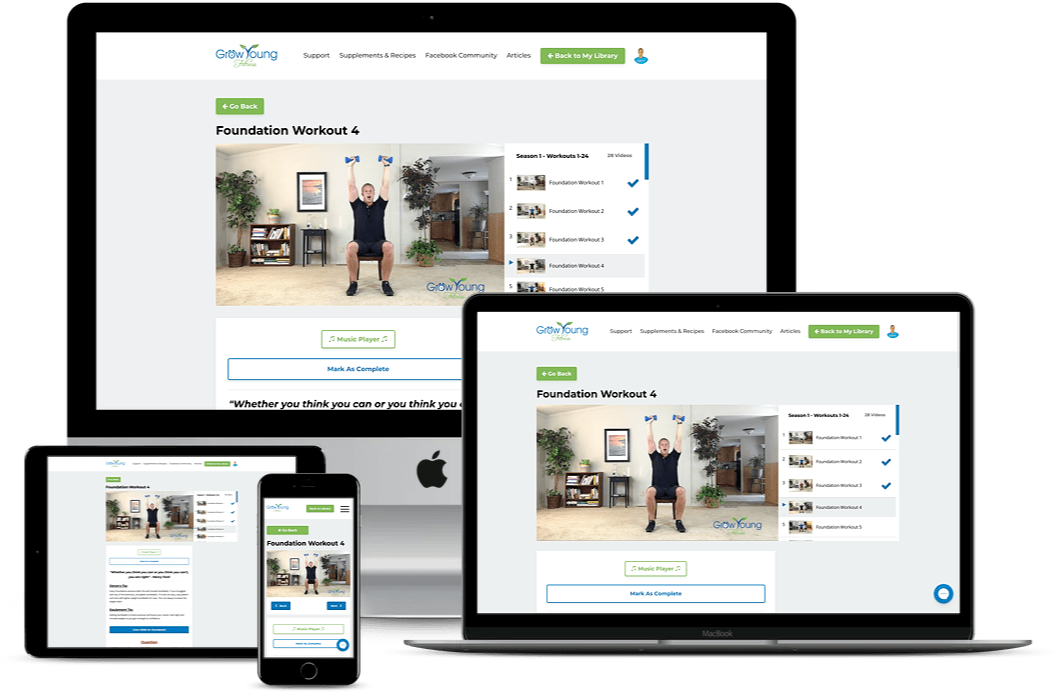
Want to Workout Online?
Members of the Founders' Club get the best results. They have the tools they need to get fit, and stay fit!
- Access to 300+ workouts
- Stream from your favorite device 24/7
- V.I.P. Support
- Best for Long Term Results
Health & Fitness Blog
The Confidence Builder: A Simple Guide for Everyone
Confidence isn’t about being the loudest in the room. It’s about trusting yourself, handling life’s ups and downs, and moving forward with purpose—even when you’re unsure. This short guide provides practical steps to help you build self-assurance day by day. 1. Keep Promises to Yourself Confidence begins with self-trust. Make small, realistic promises daily (e.g., “I’ll take a 10-minute walk” or “I’ll wake up by 7 AM”). Follow through, no matter how minor. Each success adds a “win” to your mental scorecard, reinforcing that you can rely on yourself. 2. Face Discomfort on Purpose Confidence grows in the face of challenges. Seek manageable discomfort—like introducing yourself to someone new, taking a brief cold shower, or tackling a task you’ve been putting off. Each time you handle discomfort, you realize you’re capable of more than you thought. 3. Level Up Physically Your body and mind are linked. Aim for 3–5 workout sessions a week (walk, lift weights, yoga—whatever you enjoy). Posture: Stand tall, breathe deeply, keep your shoulders back. Nutrition: Focus on whole foods; limit excess junk. Sleep: Aim for 7+ hours if you can. Feeling physically stronger often translates into mental resilience. 4. Take Pride in Small Wins Confidence is built one step at a time. Each day, note at least one thing you did well: “I’m proud I did ___ today.” Small wins create big momentum—they remind you you’re making steady progress. 5. Audit Your Environment (People + Content) Your surroundings shape you more than you realize. Reduce negativity: Limit time around people or media that bring you down. Add positivity: Seek uplifting friends, podcasts, books, or mentors that align with your goals. Your environment is constantly programming your mind—choose wisely! 6. Learn New Skills Competence fuels confidence. Pick a skill that challenges or excites you (cooking, playing guitar, woodworking, public speaking). Embrace being a beginner. Improvement—no matter how small—builds self-belief in your ability to learn and grow. 7. Get Comfortable Failing Failure is a necessary part of growth. Confident people don’t avoid failure—they learn from it. Tell yourself: “I can handle whatever happens.” This mindset keeps you moving forward, even when things don’t go perfectly. Bonus Mindset Confidence isn’t about perfection. It’s about knowing you can trust yourself, handle life’s curveballs, and keep making progress. You’ve got this! Daily Confidence Checklist Use this checklist to keep track of your daily wins. Print it out or save it on your device for easy reference: Did I keep at least one promise to myself today? Did I face something uncomfortable today? Did I move my body (walk, workout, stretch)? Did I guard my environment (limit negative influences)? Did I take pride in at least one small win today? Pro Tip: Each time you answer “yes,” you’re reinforcing positive habits. Each “no” can guide you on what to improve tomorrow. Over time, you’ll see your confidence climb, brick by brick. How to Use Print: Hang this on your fridge or keep it in a binder. Mark Your Progress: Check off your daily “yes” answers. Watch Your Confidence Grow: Small, consistent actions add up to big changes. 👉 Download the Checklist
Learn moreThe Ultimate Bone Health Guide
Introduction Welcome to your journey towards stronger bones and overall bone health! In this guide, we’ll walk you through essential strategies and tips to maintain and enhance bone health. We’ll explore the critical role of bone health in aging, effective lifestyle changes, and how our Collagen Protein can support your journey to stronger bones. 1. Understanding Bone Health The Importance of Bone HealthYour bones are more than just a framework for your body; they’re living tissues that need proper care and nourishment.Think of your bones as the foundation of a house.Just like a house needs a strong foundation to stand the test of time, your body relies on strong, healthy bones to support you through every stage of life.Good bone health ensures mobility, prevents fractures, and supports overall vitality. Common Bone Health Issues Osteoporosis: A condition where bones become brittle and fragile, increasing the risk of fractures. Imagine a dry, brittle twig that snaps easily—osteoporosis makes your bones as fragile as that twig. Arthritis: Involves inflammation of the joints, leading to pain and stiffness. It’s like having creaky door hinges that don’t move smoothly. Bone Density Loss: Reduced bone density can lead to a higher risk of fractures and breakage. Think of it as the gradual erosion of a cliff, where the once-solid rock becomes worn and unstable. Understanding these issues is crucial for taking proactive steps to maintain bone health. 2. Nutrition and Bone Health Bone-Boosting FoodsIncorporate the following foods into your diet to support strong bones: Calcium-Rich Foods: Dairy products like milk, cheese, and yogurt; leafy greens like kale and spinach. Calcium is like the cement that strengthens your bone structure, making it more resilient. Vitamin D Sources: Fatty fish like salmon, fortified milk, and egg yolks. Vitamin D is the sun that helps calcium get absorbed into your bones. Magnesium and Vitamin K: Found in nuts, seeds, and green vegetables. These nutrients are the skilled craftsmen that help maintain and repair your bone structure. Foods to LimitCertain foods can negatively impact bone health and should be limited: High-Sodium Foods: Excessive salt can lead to calcium loss through urine. It’s like washing away the essential nutrients from your bones. Sugary Beverages: High sugar intake can lead to bone loss and weakened bones. It’s like pouring corrosive chemicals that gradually weaken your bones. 3. Lifestyle Tips for Strong Bones Exercise for Bone HealthRegular exercise is vital for maintaining bone strength and density. Incorporate these activities into your routine: Weight-Bearing Exercises: Walking, jogging, and dancing help stimulate bone formation. Think of these exercises as the drills that help fortify the foundation of your house. Strength Training: Using weights or resistance bands to build muscle and bone density. Strength training acts like the reinforcements that add extra support to your bones. Balance Exercises: Activities like my balance exercises or yoga improve balance and reduce the risk of falls. Balance exercises are like the safety rails that prevent you from stumbling. Sunlight ExposureGet regular, moderate sun exposure to boost your Vitamin D levels. Imagine sunlight as a natural builder that helps your bones absorb essential nutrients. Healthy Habits Avoid Smoking and Excessive Alcohol: Both can weaken bones and increase fracture risk. It’s like having termites that undermine the structural integrity of your house. Regular Check-Ups: Monitor bone health with regular medical check-ups and screenings. Think of it as routine maintenance to ensure your bone structure remains in top shape. 4. Bone Health Myths and Facts Myth: Osteoporosis only affects older adults.Fact: Osteoporosis can affect people of all ages. Early prevention and healthy habits are crucial for everyone. Myth: Calcium supplements are enough for strong bones.Fact: A combination of calcium, Vitamin D, and other nutrients, along with regular exercise, is essential for optimal bone health. Myth: Bone loss is inevitable with age.Fact: While bone density naturally decreases with age, maintaining a healthy lifestyle can slow this process and improve bone strength. 5. Supplements and Bone Health Collagen ProteinCollagen is a key structural protein in bones, providing strength and flexibility.Our Collagen Protein supplement helps support bone health by replenishing the natural collagen in your body.It’s like adding high-quality materials to the construction of your house, ensuring durability and resilience. Calcium and Vitamin D SupplementsThese are crucial for maintaining bone density and strength. They work together to fortify your bones and enhance overall bone health. Magnesium SupplementsMagnesium supports bone health by aiding in calcium absorption and bone formation. 6. Sample Meal Plan for Strong Bones 7-Day Bone-Boosting Meal PlanHere’s a week-long meal plan designed to support bone health: Day 1: Breakfast: Greek yogurt with almonds and blueberries Lunch: Spinach salad with salmon and a citrus vinaigrette Dinner: Grilled chicken with quinoa and steamed broccoli Snack: A glass of fortified orange juice Day 2: Breakfast: Smoothie with spinach, banana, and collagen protein Lunch: Lentil soup with a side of whole grain bread Dinner: Baked cod with sweet potatoes and green beans Snack: Carrot sticks with hummus Day 3: Breakfast: Scrambled eggs with a side of whole-grain toast Lunch: Tofu stir-fry with frozen veggies and brown rice Dinner: Turkey burger patty with steamed broccoli Snack: Fortified plant-based milk Day 4: Breakfast: Oatmeal with a sprinkle of chia seeds Lunch: Grilled shrimp over a bed of mixed greens Dinner: Stuffed bell peppers with canned beans and quinoa Snack: Sliced apple with almond butter Day 5: Breakfast: Cottage cheese with a few pineapple chunks Lunch: Leftover quinoa with roasted vegetables Dinner: Baked salmon with a side of spinach Snack: A handful of dried apricots Day 6: Breakfast: Smoothie bowl with Greek yogurt and berries Lunch: Chickpea salad with cherry tomatoes Dinner: Grilled pork chop with wild rice Snack: Edamame Day 7: Breakfast: Whole-grain toast with a banana Lunch: Spinach and mushroom omelet Dinner: Lentil soup with whole-grain bread Snack: Fortified almond milk 7. Success Stories Real People, Real Results 8. Next Steps Strengthen Your Bones TodayNow that you’ve learned the essentials of bone health, it’s time to take action.Consider adding our Collagen Protein to your routine to further support your bone health journey.This supplement is designed to help you maintain strong bones, improve flexibility, and boost your overall well-being. ConclusionMaintaining strong bones is a continuous journey, but with the right knowledge and tools, you can achieve and sustain optimal bone health.We hope this guide has provided valuable insights and actionable steps to help you on your way. Remember, it’s never too late to start taking care of your bones! 👉 Try Our Premium Collagen Protein!
Learn moreThe Ultimate Gut Health Guide
Introduction Welcome to your journey towards better gut health! This guide will walk you through everything you need to know to maintain a healthy gut, improve digestion, and enhance your overall well-being. Whether you're just starting or looking to fine-tune your gut health, this guide offers practical advice, tips, and tools to help you achieve your goals. 1. Understanding Your Gut The Importance of Gut Health Your gut is like a garden; just like you need to tend to your plants to keep them thriving, your gut requires care and attention to stay healthy. Imagine your digestive system as a lush garden, where probiotics are the helpful gardeners that nurture and protect the plants (your good bacteria), while prebiotics are the rich soil that feeds them. A well-tended garden flourishes, providing beauty and nourishment. Similarly, a healthy gut supports your overall well-being, providing essential functions like digestion, nutrient absorption, and immune defense. Common Gut Issues Bloating: Often caused by overeating, eating too quickly, or consuming gas-producing foods.Imagine a balloon that’s been overinflated—uncomfortable, right? Bloating is similar; your gut fills with excess gas, making you feel puffy and uncomfortable. Constipation: Can result from low fiber intake, dehydration, or a sedentary lifestyle. Acid Reflux: Triggered by certain foods, obesity, or stress, leading to heartburn and discomfort. Diarrhea: May be caused by infections, food intolerances, or certain medications. Understanding these issues is the first step in making informed decisions about your gut health. 2. Food and Gut Health Gut-Friendly Foods Incorporate the following foods into your diet to support a healthy gut: Probiotics: Yogurt, kefir, sauerkraut, and other fermented foods.Probiotics are like tiny superheroes that live in your gut. Just like superheroes protect the city from villains, these good bacteria protect your gut from harmful invaders and keep everything in balance. Prebiotics: Bananas, garlic, onions, and whole grains.If probiotics are the superheroes, then prebiotics are their favorite food—giving them the energy they need to protect your gut. Fiber-Rich Foods: Beans, lentils, fruits, and vegetables. Omega-3 Fatty Acids: Fatty fish like salmon, flaxseeds, and walnuts. Foods to Avoid Certain foods can disrupt gut health and should be limited or avoided: Processed Foods: High in unhealthy fats, sugars, and additives. Artificial Sweeteners: Can negatively affect gut bacteria and lead to digestive issues. Excessive Red Meat: High consumption can disrupt the balance of gut bacteria. 3. Lifestyle Tips for a Healthy Gut Mindful Eating Chew Thoroughly: Helps with digestion and prevents overeating. Eat Slowly: Gives your stomach time to signal when it's full. Portion Control: Avoid overeating by serving smaller portions. Hydration Drink plenty of water throughout the day to keep your digestive system running smoothly. Tip: Start your day with a glass of water to kickstart your metabolism. Stress Management Meditation: Even a few minutes a day can reduce stress. Deep Breathing: Practice deep breathing exercises to calm your mind. Yoga: Incorporates physical activity with mindfulness, beneficial for both your gut and mental health. Think of improving your gut health like training for a marathon. You wouldn’t start running without the right shoes, training plan, and nutrition, would you? Similarly, you need the right tools (like probiotics and prebiotics), a plan (consistent healthy habits), and proper nutrition to strengthen your gut for the long haul. 4. Gut Health Myths and Facts Myth: All bacteria are bad.Fact: Your gut contains both good and bad bacteria. The key is maintaining a healthy balance. Myth: Probiotics are only for people with digestive issues.Fact: Probiotics can benefit everyone by supporting a balanced gut flora. Myth: Fiber is only important for preventing constipation.Fact: Fiber is essential for overall gut health, including feeding the beneficial bacteria in your gut. 5. Supplements and Gut Health Probiotics and Prebiotics Probiotics are live bacteria that add to the population of good bacteria in your gut, while prebiotics are types of fiber that feed the good bacteria already present. Taking a high-quality probiotic supplement can support your digestive system, especially if you’re dealing with gut health issues. Digestive Enzymes These supplements can help break down food and absorb nutrients, especially if your digestive system needs a little extra help.Think of probiotics as the "good cops" that maintain order in your digestive city. When the "bad guys" (harmful bacteria) try to take over, probiotics step in to keep the peace, ensuring that your digestive system stays healthy and balanced. 6. Sample Meal Plan 7-Day Gut-Friendly Meal Plan Here’s a week-long meal plan packed with gut-friendly foods to help you kickstart your journey: Day 1: Breakfast: Greek yogurt with honey and berries Lunch: Quinoa salad with roasted vegetables Dinner: Grilled salmon with steamed broccoli Snack: A handful of almonds Day 2: Breakfast: Overnight oats with chia seeds and banana Lunch: Lentil soup with a side salad Dinner: Stir-fried tofu with brown rice and mixed vegetables Snack: Apple slices with almond butter Day 3: Breakfast: Whole-grain toast with almond butter and sliced strawberries Lunch: Tuna salad with canned tuna, mixed greens, and olive oil dressing Dinner: Baked salmon with a side of roasted sweet potato Snack: A handful of almonds Day 4: Breakfast: Smoothie with spinach, frozen berries, and almond milk Lunch: Chicken wrap with grilled chicken, lettuce, and hummus in a whole-grain tortilla Dinner: Scrambled eggs with sautéed spinach and whole-grain toast Snack: A small yogurt Day 5: Breakfast: Instant oatmeal topped with a handful of walnuts and a drizzle of honey Lunch: Quinoa salad with diced cucumber, cherry tomatoes, and feta cheese Dinner: Grilled cheese sandwich on whole-grain bread with a side of baby carrots Snack: Sliced cucumber with hummus Day 6: Breakfast: Whole-grain cereal with almond milk and sliced banana Lunch: Peanut butter and banana sandwich on whole-grain bread Dinner: Baked chicken thighs with a side of steamed green beans Snack: A pear Day 7: Breakfast: Yogurt parfait with Greek yogurt, granola, and fresh berries Lunch: Simple pasta salad with whole-grain pasta, cherry tomatoes, and olive oil Dinner: Grilled shrimp with a side of brown rice and steamed peas Snack: A small handful of mixed nuts 7. Gut Health Quiz Assess Your Gut Health Answer the following questions to understand your current gut health: How often do you experience bloating?Rarely / Sometimes / Often Do you regularly consume fermented foods?Yes / No How often do you experience constipation or diarrhea?Rarely / Sometimes / Often How many servings of fruits and vegetables do you eat daily?0-1 / 2-3 / 4+ Based on your answers, you can determine areas where you might need to focus on improving your gut health. 8. Success Stories Real People, Real Results 9. Next Steps Take Control of Your Gut Health Now that you’ve learned the essentials of gut health, it’s time to take the next step. Consider adding a high-quality probiotic supplement to your routine to further support your gut health journey. Our Probiotic + Prebiotic Fiber is designed to help you maintain a healthy gut, improve digestion, and boost your overall well-being. Conclusion Maintaining a healthy gut is an ongoing journey, but with the right knowledge and tools, you can achieve and sustain optimal digestive health. We hope this guide has provided valuable insights and actionable steps to help you on your way. Remember, it's never too late to start taking care of your gut! 👉 Try Our Probiotic + Prebiotic Fiber!
Learn more

